Carnival of Mirrors Four Fates
- 4 years ago
- 32
- 0
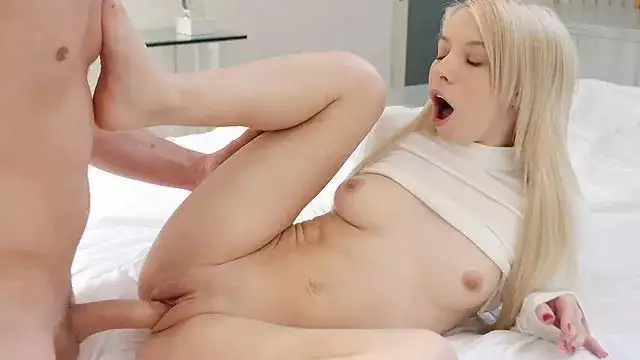
 3 years ago
3 years ago
By: jesolal CARNIVAL NIGHT (GOVAN’S CULTURE) **HOT** Hi ! everybody. Welcome back. it is my 7th Submission of Anubhav. Other submissions are:- Hot Jeso Moombhathi Jalaadhi Ch.1, (Hindi) Hot Jeso Moombhathi Jalaadhi Ch.2, (Hindi) Hot Jeso Moombhathi Jalaadhi Ch.3, (Hindi) Hot Jeso Moombhathi Jalaadhi Ch.4, (Hindi) Pattathi Vidhava Kush*Hot* (Malayalam) LIC benefit fucking *Hot* (Hindi) Continue now.. Jeso came to office in very happy mood and we enquired what is the matter; she explained to...
 4 years ago
4 years ago
Every fall, the carnival comes to Chrystal Heights. The carnival sits away from the city limits proper. This is ostensibly so the lights and noise doesn’t bother the residents, but everyone knows it’s actually so as to allow the comings and goings to remain a matter of personal business. After all, say the many, what happens at the carnival should stay with the carnival. It’s an ordinary carnival in many respects. Once you step inside the gates, you will be assaulted with a variety of noises...
 2 years ago
2 years ago
Carnival Queen Chapter 1 - 1 in a million My family owned the best beauty parlour in the district in mid America where I lived. It did hair, make up, tattoos, permanent make up, hair removal, nails, tanning and everything a good parlour should provide including botox, etc. It even had links to a cosmetic surgery for more structural changes. I was 17 and I had an older sister of 19, Samantha, and she was very excited right now. It was time for the town carnival and every year...
 2 years ago
2 years ago
The Chrystal Heights carnival was set slightly away from Chrystal Heights proper. This kept the lights and the music from bothering the residents unduly. It also allowed those who wanted to go to the carnival unobserved by others to do so. It was an ordinary carnival in many respects, with rides, screaming children and a variety of games. Of course, it was also an unusual carnival in many ways, as one might expect from a carnival that traveled between Chrystal Heights and Darkview on a regular...
 2 years ago
2 years ago
Introduction: For one day, go without disguise. Give him a mask, and he will tell you the truth. -Oscar Wilde, The Critic as Artist *** In truth, I often wonder what people look like under their masks. As she said it Portia pushed her hand against her own mask, as if to assure herself it was still there. Her skirts brushed the naves marble floor and she kept her eyes on it as she walked. The masks of the gods stared down at her from the cathedral walls. Do you? Well, theres little enough...
 3 years ago
3 years ago
The summer of 1980 seemed to hold nothing but promise for this young man. Just one year out of high school it was an easy decision for me to take a year off before going to college. Heck, I was young enough to enjoy myself and wanted to travel and see the country while I had the opportunity. The year before, just out of high school, I had taken a job as a carnival worker or carnie as they are known. It gave me the chance to schlep across country and get paid in the process. Being a carnie can...
 4 years ago
4 years ago
The summer of 1980 seemed to hold nothing but promise for this young man. Just one year out of high school it was an easy decision for me to take a year off before going to college. Heck, I was young enough to enjoy myself and wanted to travel and see the country while I had the opportunity. The year before, just out of high school, I had taken a job as a carnival worker or carnie as they are known. It gave me the chance to schlep across country and get paid in the process. Being a carnie can...
Straight Sex 2 years ago
2 years ago
It was after three a.m. when Kristy quietly let herself into the apartment. She had hoped to find Shari asleep, but her friend, who was in the kitchen pouring herself a fifth cup of coffee, came running into the front room. "Kristy, where in the world have you been? I've been worried sick!" "I'm OK. I took a long walk to do some thinking," lied her roommate. "You don't sound OK. Your voice sounds different somehow." "I'm just tired." "I called Eric, but he said he hadn't...
 3 years ago
3 years ago
The tent was nearly full for this last performance before the carnival moved on. Nearly two hundred people, a mixture of women and men, sat around the center ring talking and laughing. Kristy noted they were all dressed elegantly and each had paid a handsome fee at the gate. This carnival was obviously only for the well-to-do. Victoria also seemed to know virtually everyone. The brightly lit center ring held an unusually large bed, nothing more. Puzzled, Kristy began trying to find a...
 3 years ago
3 years ago
"Why me? Why send me an invitation to one of your performances?" Shari was anxious to see Kristy again, but still felt a distrust of this woman who called herself Victoria something or other. "Why Shari dear, I thought you would want to see your friend Kristy, especially now that she's the star of the show." They stood at the main entrance to the tent as the other patrons were buying or presenting tickets and entering. "Star of the show?" questioned Shari, "I thought she was just...
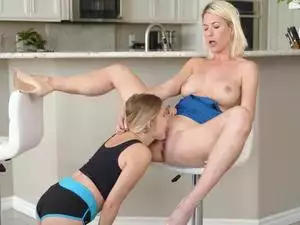 3 years ago
3 years ago
It was still damp and cool when he left his babe trailer; his Heaven on wheels. Weak and still a little hung over, he slogged to his tent and went back to sleep until the fog lifted. It seemed like only minutes had passed, but awakening to the heat and humidity told him it was much later; almost noon. Friday turned into a scorcher. As soon as he had gotten up, Bobby spent most of the day at the small beach he and Andy found earlier in the week. He spent more time in the refreshing...
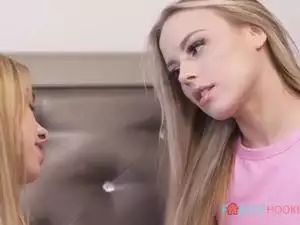 2 years ago
2 years ago
I awoke early this morning, still thinking about last night as I prepped for the day. Corrine had given me the best blowjob of my life. The images of my shriveling thick cock pulling from her mouth dripping with her saliva and my cum and the sweet little ‘plop’ sound as my tool broke the suction of her full lips still echoed in my mind. Strings of slippery sticky fluid drooled from both sides of her hot mouth soaking the top of her undulating breasts. Just thinking of last night caused my...
 3 years ago
3 years ago
After returning to New Jersey from my left coast finale, I moved into a trailer I shared with a buddy from high school. It was tight, but there was just enough room for my guitar, my blues records, and me. I bought an old BSA Gold Star 650 motorcycle and spent the beginning of 1980 traveling up and down the East Coast on the bike. You could always tell where I had last parked it by the oil stains on the pavement, but it ran well and more importantly, it looked damn cool. By summer I had...
 3 years ago
3 years ago
Today I audition for a new job with a traveling carnival. I’m excited but also a little nervous about what all the job might require. The employment agency that set everything up would only tell me that this wasn’t a typical carnival in that only those 18 and older were allowed inside. Also, I needed to be comfortable with nudity. Since I really need a job, I’ve decided that I have no issue showing off my body and spent the morning getting everywhere nice and smooth. I arrive and introduce...
Fetish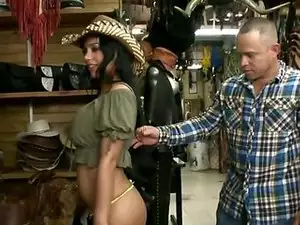 4 years ago
4 years ago
The summer of 1980 seemed to hold nothing but promise for this young man. Just one year out of high school it was an easy decision for me to take a year off before going to college. Heck, I was young enough to enjoy myself and wanted to travel and see the country while I had the opportunity. The year before, just out of high school, I had taken a job as a carnival worker or carnie as they are known. It gave me the chance to schlep across country and get paid in the process. Being a carnie can...
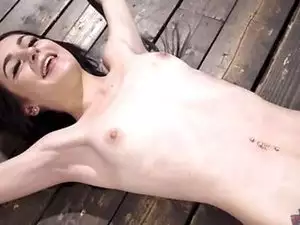 2 years ago
2 years ago
Kristy was awakened by a knock at the door. Circles under her eyes for lack of sleep, her cheeks still tear stained, she opened the door. "What... ?" "I've brought your things and come to pick up mine," said Janeen, "since it looks like this arrangement is going to be permanent." The redhead smiled wickedly while Kristy's eyes fell in dejection. Janeen threw down two bags containing Kristy's few belongings and began gathering her own together. "The Mistress brought me to orgasm...
 3 years ago
3 years ago
[When I found that a journalist friend of mine had been to report on Iron Henge I was naturally anxious to read the story. After some persuasion she sent me the story spiked by her editor, followed a few weeks later by the (much longer) ‘original draft’. Then when I mentioned that Lush was doing a fall equinox competition she sent me the ‘extended edition’ that follows. For obvious reasons, all names have been changed.] Chances are the Lush people have never heard of Iron Henge. It isn’t...
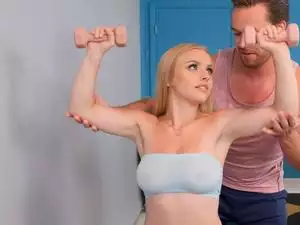 3 years ago
3 years ago
The summer of 1980 seemed to hold nothing but promise for this young man. Just one year out of high school it was an easy decision for me to take a year off before going to college. Heck, I was young enough to enjoy myself and wanted to travel and see the country while I had the opportunity. The year before, just out of high school, I had taken a job as a carnival worker or carnie as they are known. It gave me the chance to schlep across country and get paid in the process. Being a carnie can...
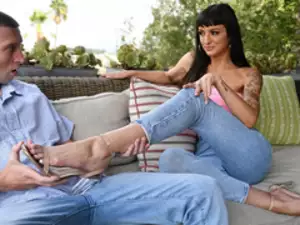 4 years ago
4 years ago
In April 1692, he last two surviving witches to escaped the salem witch trials died on the outskirts of a small town. The two bodies were burned, their ashes were scattered to the winds. But on that day, their ashes on fell to the ground. Those ashes, infused the ground with what was left of their souls. For little over 400 years those woods, were left to their own.The animals, never went near the area. No plants seemed to grow there. There only that seemed to grown were a few trees that never...
Fantasy 4 years ago
4 years ago
It truly was a magical day when Amy Anderson-Wooding was chosen as her town's Regatta Senior Princesses. It was the first year she had entered and was amazed that she had got the title. The regatta was an important date in the calendar for all the locals. For the young ladies taking part it was a really big deal, particularly if they won a title. Kirstie Boyce was chosen as the other senior princess, keeping her status from the previous year. They knew that in next year's event one of them...
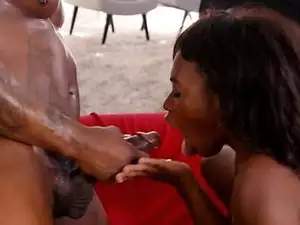 3 years ago
3 years ago
Kristy awoke the next morning aching and sore in every joint and muscle in her badly abused body. Victoria had indeed held her close throughout the night, their bodies entwined in romantic and erotic pleasure. Kristy's almost comatose state had precluded their making love, but Victoria had assured her that as soon as she was feeling better, Kristy would be rewarded for her outstanding performance and the sacrifice of her virginity. So Kristy's sound sleep had been born of both exhaustion...
 5 years ago
5 years ago
It was the end of the summer in Ocean View and soon the tourist trade would start to slow down as students went back to school and parents used up their vacation time. As was the tradition every summer, a carnival came to Ocean View and set up at the edge of town for two weeks. There was the traditional Ferris Wheel, Merry-go-Round, Tilt-a-Whirl, and a lot of other rides for adults and kids. The one attraction that always fascinated George was The House of Mirrors. Even at the age of sixty, his...
Fetish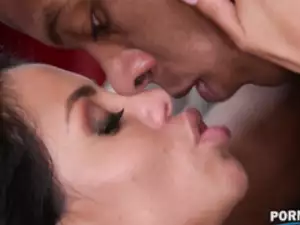 4 years ago
4 years ago
This story is from an original by Ellie Dauber. Ellie opened it to others to write in, and I took the chance to do so. If anyone else wishes to do so, please contact Ellie first. Also, do consider all the disclaimers and caveats to have been given. If you are not old enough to be reading this legally, GO HOME. Otherwise, please enjoy. House of Mystic Mirrors: Veiled Truths By Maggie Finson Ronald Maddox glared in open dislike as the ladies passed in front of him on the street....
 3 years ago
3 years ago
Paybacks - A Carnival of Mirrors Story By Jerrie526 My thanks to Bob H for this tempting little universe to play in. I hope that I do his area justice. * * * * * * * August 17th, 2003 Hank 'The Snake' Preston was feeling ecstatic after his latest conquest. Not that anyone would ever call him 'The Snake' to his face unless they didn't value their lives. He was one of the most unscrupulous men that ever walked the face of the planet. A man of moderate height, he...
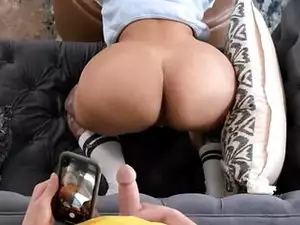 4 years ago
4 years ago
SMOKE AND MIRRORS BYDOROTHY STRANGELOVEThe day the new seafront attractions opened changed everything for me. I had lived in a little town whose tourist features had long since fallen away with the changing times and for years my home town had been nothing more than a dot on a map. Then the old yawning gap that used to hold the old fairground was built on and the whole place was renovated. Suddenly we had a bar and restraunt, a nightclub and a massive array of seaside attractions that made it...
 4 years ago
4 years ago
Generations By Gingerfred Man AUTHOR'S NOTE - There is no reasonable explanation, biological or otherwise, for the Freeloves' spectacularly unusual anatomy or their ability to procreate. So none is offered. I suggest you enjoy the story anyway. Chapter One - Meet the Freeloves The alarm clock woke Lisa Freelove at 6:30 a.m., as it did every Monday through Friday. She rubbed sleep from her eyes and anticipated yet another wonderful day. Every...
 3 years ago
3 years ago
I married a woman with 3 daughters my wife Kim was never married but had 3 daughters by 3 men. Monica the oldest was 26 she recently got out of a bad relationship and moved back home. Her shoulder length curly burgundy hair outlined her beautiful face. She was 6’ tall and heavy. A bbw body. Huge thighs and ass. Big belly and a B- cup tits. But absolutely gorgeous face. Second was Hanna she was 22 long brown hair nice plump lips average weight for someone 5’7 nice figure C-cup tits nice thick...
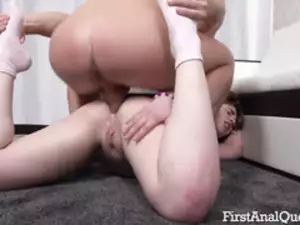 4 years ago
4 years ago
Megan Brown ………. Generations In which Megan Brown and her descendants are schooled and disciplinedIn “Hope Springs” an Anglo Irish Community in Virginia beginning in the year of s*******n sixty one…………………….This story is not in any way a history of Virginia or “The old Dominion” as it was sometimes called. It is the story not of slavery or revolution ,rather the daily lives of the good people of “Hope Springs” a small farming community in...
 2 years ago
2 years ago
Graell's Quest - The Hall of Mirrors Keith awoke feeling refreshed for a minute thinking the last couple of days had really been an especially vivid dream, but only for a moment. Reality intruded on a blissful morning like a cold north wind, when a yawn and a stretch suggested the bed to be larger than it was, or more accurately, as Keith's awakening perception knew, arms and legs that weren't as long as memory recalled. Along with the unaccountable size change, of course, were...
 2 years ago
2 years ago
Rachel sighed, stretching out her arms to full length, reveling in the feel of the warm sun on her skin. She sat deep in thought along the shoreline of Lake O’ the Pines, near her grandparent’s house in East Texas. Her thoughts wandered. She was so fortunate to still have her grandparents, she thought. Already twenty four, sometimes Rachel still liked to come visit them as she had as a child. A getaway to write and to think was just what the doctor ordered. It was mid May and Rachel had met...
Seduction 3 years ago
3 years ago
It cost me twenty-five dollars to get in. The woman working the front had a hoodie over a bikini which made for a confusing yet alluring introduction to the building. I had never been to a strip club before and had no idea what to expect. I had a vape pen in my pocket I was hitting so hard I could have caught an assault charge. That is to say that I was stoned and walking into very dangerous new territory. My hand was stamped and the military-grade velvet rope was removed from my path. I...
Hardcore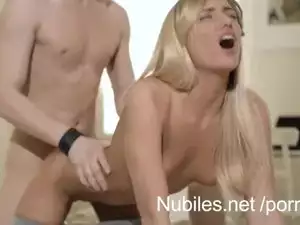 4 years ago
4 years ago
Shopping with mirrors I was shopping for a good while now, in and out of clothing shops. I just haven’t found anything that I felt was sexy enough to buy. Still, I kept walking through this big mall, I found another cute little clothing shop tucked in one of its corners. I gave the dresses in the display window a good looking over, they were just the thing I had in mind and decided to go in. The dresses were a little bit more expensive than I would have liked but...I kept looking through the...
 3 years ago
3 years ago
The Cheerleader Transformation Part 2 Liquid Mirrors By Caitlin Arabesque Chapter 1 Britney's eyes began to flutter open. Instantly she started screaming and gyrating her body as much as possible. Her screams were muffled and she was barely moving. Someone had their hand over her mouth, and was holding her down. She looked side to side and saw Amber sitting on her legs and Kristen leaning across her upper body. Kristen was...
 2 years ago
2 years ago
Slogging back to his tent with an ice-cold Pepsi, Bobby looked up and noticed a familiar face at the edge of the fairgrounds. Long fine blonde hair gently moving in the almost nothing of a breeze, Debbie’s friend Sammie began strolling toward Bobby. Sammie had coy smile as she approached Bobby. “Hi, Bobby!” she shouted. “Hello Sammie. If you are looking for Andy, I haven’t seen him today. Most of the ride boys are gone for the day; off doing what ever.” “Actually, I came to see...
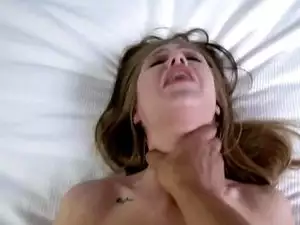 3 years ago
3 years ago
The two young Americans sat nursing cups of coffee at a small sidewalk cafe. Both women were exchange students who had come to Romania, one to study the language, the other its culture. Kristy Anders' passion for the culture of Eastern Europe had its origins in American vampire movies and her youthful fascination with Transylvania. She had scrimped and saved since a sophomore in high school and along with modest help from her not-well-off parents and a generous grant, she was now spending...
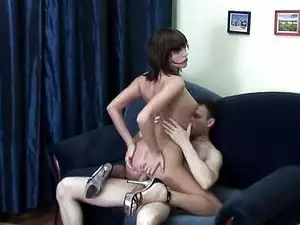 3 years ago
3 years ago
The tent was filled to capacity as the word had obviously spread that Victoria now had two performers in her stable and expectations were high for a very entertaining evening. Victoria stepped into the light of the ring to polite applause. She smiled warmly as she spoke to the audience. "Ladies and gentlemen, tonight a special treat. Not one, but two young women to capture your fancy!" Laughs and smiles. "Our first performer is a lovely young woman who is learning to give pleasure to...
 3 years ago
3 years ago
Kristy's eyes fluttered open as sunlight filtered through the one small window. Finding herself in the arms of Victoria, her lips found those of her Mistress and they kissed deeply. Victoria arose as Kristy threw off the covers and stretched. Her entire body ached, so even though she noticed the tenderness in her breast, she simply assumed it was one of her many wounds received at the hands of Janeen last night, the subject of which brought a question to mind. "She's gone Kristy. Gone...
 4 years ago
4 years ago
"Wake up, Kristy!" commanded Shari as she threw the bucket of water on the unconscious woman, serving to both wash her off and rouse her. "Wha..." Kristy was utterly depleted. Her eyes fluttered open to see Shari standing over her, bucket in hand. "Get up if you can! Otherwise Victoria becomes mine by default!" The exhausted young blonde was cramping so badly she clutched her lower abdomen, the tears running down her cheeks. She looked down in horror to see her vagina stretched and...
 3 years ago
3 years ago
Sean's hard dick was still in his mother's wet twat and his eyes gleamed at seeing his 18-year-old sister in a masturbating frenzy. Looking back at Lynda's glowing eyes, he saw that she too was staring at his sister Sharon. He could feel his dick pulsing as it was still pushing the last of his load into her. He could feel that his mother's cunt wasn't yet finished either, as it still squeezed around his penis while it finished filling her up. Finally, he turned again. Looking back at...
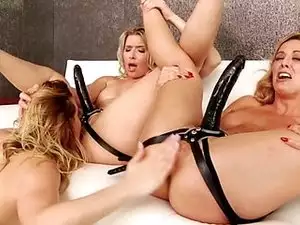 4 years ago
4 years ago
The guys in school who knew Karen thought she wasn't the type who slept around. 'Probably a virgin' was the opinion, a girl who would give oral at best. This did not matter to Sean in the least; his feelings toward her were genuine. He had plans of marriage after college too. He figured that he would propose before college and be married after he finished. He never believed she would give it out anytime before then. That changed with her parting words the night before of, ""I need to...
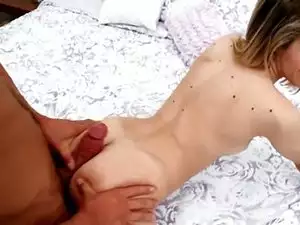 3 years ago
3 years ago
As Sean opened his eyes, the morning sun forced him to squint. Lifting the sheets, he could see that his morning hard-on was present as usual. The pain and pressure in his groin was not though. Sean wasted no time in getting up from the couch. It was Sunday morning and nobody was home. After getting dressed, he peered over at the clock to see that it was a little past noon. Driving home, Sean was still trying to make sense of what happened last night. He had waited a long time to pop...
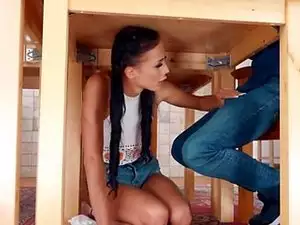 2 years ago
2 years ago
Sean awoke at the sound a door being slowly opened. His groggy eyes slowly opened to see the woman from the waiting area. To Sean, this woman looked about the same age as his mother. She had her brown hair up in a ponytail, which showed off her lovely neck. She had on a low cut top that showed most of her large breasts. Her skirt was low-cut, revealing a lot of her bare legs. She was not thin, but her weight was in all the right places. Sean knew why this woman was here. He could feel the...
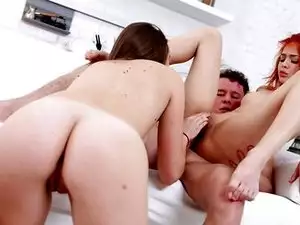 2 years ago
2 years ago
Through the spotting scope, Grady Polk and Bud Robinson viewed the villa from over half a mile away, hidden by the next ridge. He looked through the picture window into the room where Neal Handley cavorted with two young girls that couldn't be sixteen, in a sunken hot tub. Two weeks before, in Tripoli Libya, they had "interrogated" a man known only as Mustafa, that admitted to actually planning and setting the bomb that blew up the Murrah Building in Oklahoma City, and being involved in...
 3 years ago
3 years ago
Mirrors By Belinda Batman and Robin have solved another caper to keep Gotham safe. Resting at their estate, they are recharging for the next caper to face the city; however, have they really solve the last one? The last continues an acient riddle amd use of ancient, lost, methods to help one of them decide an answer. Keywords: Bisexual, corsets, cheerleader, defiant, swimsuit, hair or hair salon Categories: action / adventure, accidental change, caught with consequences, fast...
 4 years ago
4 years ago
Every summer that goes by for a decade or more now, I tell myself this is the last bikini season for me, but the following summer I invariably find that it still fits and I still look as presentable as could be expected for my late forties. But even had I been concerned that my prime was finally past as I blossomed forth from Elizabeth and Jonathan’s seaside cottage on that sunny afternoon, I would have surely allowed for one last hurrah of our youth, after all, that was what the holiday was...
 2 years ago
2 years ago
"I'm serious, Penny! I heard it with my own ears! He is going to the hypnotist's show with Mrs. Chester!" Laura Mills, an 18 year old blonde, was excited, her azure blue eyes sparkling. Penny Styrgon was the same age as her cousin and friend, but with raven black hair and brown eyes they created a stark contrast to each other. Penny was finally convinced that Laura's vivid imagination wasn't making things up this time. She smiled. A hypnotist's show? Why not? Even if he wouldn't have...
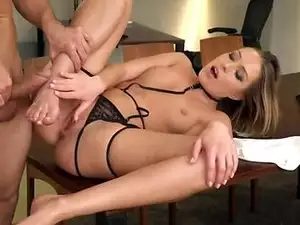 5 years ago
5 years ago
As our War on Terror continues, one question would be, "When did it start?" The correct answer would be, When the World Trade Center was attacked. No, not on September 11, 2001, but in 1993! We endured several more strikes against our nation prior to 9-11, none of which was acknowledged to be what it was. The prior administration so gutted our Military with cutbacks, and Political Correctness, that it is but 5% of our "Cold War" strength. It was far easier to go after "Right Wing...
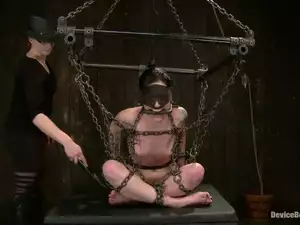 4 years ago
4 years ago
As I watched my fourteen year old great granddaughter lounging in the sun I couldn’t help but think back to that day I found her grandmother, my daughter, messing around with a man in my bedroom. I was supposed to be at work but had decided it was too nice a day to be at work. So I told John my assistant manager that as company boss I deemed it my responsibility to get as much sunshine as possible to keep me healthy. “Yes sir Mr Thomas,“ He smiled. It’s not like I hadn’t done this before....
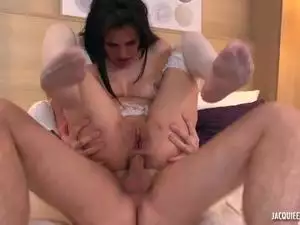 3 years ago
3 years ago
August 4th 1977 was the date the death knell of the X-Men had been signed. Cyclops was gone. The leader of the X-Men was dead. Charles Xavier was gone. The founder of the X-Men was in space to find a new home for mutant Skrulls. Jean Grey was gone. The light of the X-Men had resigned out of a fervent belief that Cyclops was still alive. Magneto had returned to Genosha, with Polaris going with him. Bishop had returned to some desolate future. Gambit had resigned to lead the Thieves' Guild....
Fantasy 4 years ago
4 years ago
PROLOGUE John laid down on the exercise bench as he lifted the bar up and down trying to remember a time when fifty pounds didn?t seem like as much. In his younger day he wouldn?t think twice about trying to bench over a hundred pounds. Now if he did it he would probably end up in the hospital. Of course for a man in his forties he was in great shape. He tried to keep in shape. A habit he inherited from mom. Heck she still did yoga and stuff herself and was a damn good looking woman. He put...
Incest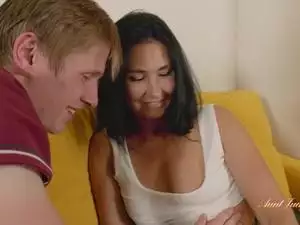 2 years ago
2 years ago
Me and my family...are on our way to my grandma,s..just paying her a visit...as she lives out in the country.dad...decided to set of early....im 21...my sister..carol..25...dad....45..and mom....44...l really didn,t want to come?..as gran and grandad...like to walk around in the nude...naturist,really...dad..why do l have to come?...i said..well son...dad said....we are family...and nobody gets left out...l know dad,but...but what...dad...said...you dont like looking at old people,s bits?....id...
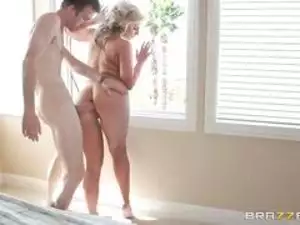 4 years ago
4 years ago
by a_decent_fellowIt was Memorial Day weekend of the year that I was going to turn fifty years old. I told my wife that a guy that I work with asked me if I would go to his hunting camp with him over the weekend and help him install a new hot water tank."Do you want to come along?" I asked, knowing she would decline."You know damn well that I have to work!" she barked, "Besides, the only reason you want me to go along is to cook for you and empty to the shit bucket. I'll see you when you get...
 2 years ago
2 years ago
i****t, Genetic Sexual AttractionChapter 1It was a Sunday early morning, hearing loud noises from the Hostel corridor, I came out of my room and learnt to my shock and surprise our classmate Mohan was found dead in his room, obviously committed suicide. An empty arsenic bottle and a suicide note found besides the bed.He hails from a wealthy rich landlord family, the only son of his parents and doing well in studies. He married six months earlier Madhusmita. No one could imagine the reasons for...
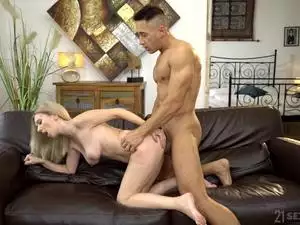 3 years ago
3 years ago
So it started off as a cold, wet,typical northern Indiana day. I had gone to the local home improvement center, to pick up some charcoal needed to cook a delicious pork tenderloin on the grill later that day. When I looked up and saw a beautiful Red head walking my direction. Her Buggy was filled to the top with wallpaper,paint, drywall compound. and a lot of the tools one would need to complete the jobs she had in mind. I figured she had to be in her late fifties, and said good morning as I...
 4 years ago
4 years ago
Incest, Genetic Sexual Attraction Chapter 1 It was a Sunday early morning, hearing loud noises from the Hostel corridor, I came out of my room and learnt to my shock and surprise our classmate Mohan was found dead in his room, obviously committed suicide. An empty arsenic bottle and a suicide note found besides the bed. He hails from a wealthy rich landlord family, the only son of his parents and doing well in studies. He married six months earlier Madhusmita. No one could imagine the reasons...
Incest 5 years ago
5 years ago
Am a bit free of my pressing career commitments now so here’s the next ……about bindu. Chip of the old block!With beena now totally in my care, we were meeting and mating quite unabashedly. It was during one such day that I could break ice with bindu. As I had mentioned earlier bindu was doing her management studies in Bangaloreand used to come home on weekends or once a month. As beena had married early this lass of hers was around 23yrs of age and in stark contrast to her mother. She was...
 4 years ago
4 years ago
"That was a really excellent dinner, Mrs. Romanowski." Stanley Greene said as he laid his napkin on the table. "It's been a real long time since I ate that good." "Well, when you marry my Rachel, you'll eat that good all the time," the fifty-two year old woman said as she began to clear the table. "I've taught her everything I know." "Oh Mother," Rachel Romanowski said from the other side of the table. "Let me help you with those, Mrs. Romanowski." Stanley said as he got up...
 3 years ago
3 years ago
As I watched my fourteen year old great granddaughter lounging in the sun I couldn't help but think back to that day I found her grandmother, my daughter, messing around with a man in my bedroom. I was supposed to be at work but had decided it was too nice a day to be at work. So I told John my assistant manager that as company boss I deemed it my responsibility to get as much sunshine as possible to keep me healthy. "Yes sir Mr Thomas," He smiled. It's not like I hadn't done this...